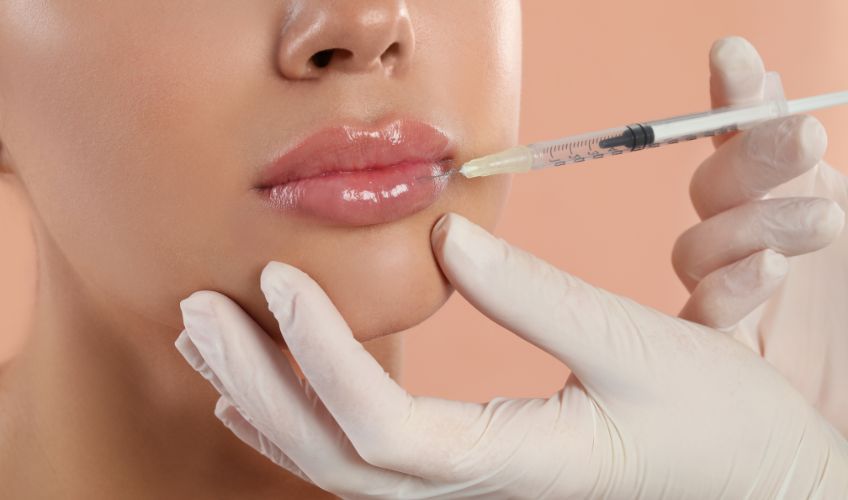Aging carries its own beauty, though not everyone appreciates the changes that accompany it. As the skin's collagen diminishes, it becomes loose, forming fine lines and wrinkles. Fortunately, numerous cosmetic procedures can rejuvenate the skin, making it appear young and vibrant once again.
In addition to facial skin, lips also begin to show wrinkles as we age. This is where dermal fillers like Restylane and Juvederm come in handy, effectively filling in wrinkles, enhancing lip volume, and giving them a fuller appearance.
Given that both treatments are successful in enhancing the fullness of the lips, it's essential to understand the differences between Restylane and Juvederm when deciding which one to use.
What is Restylane and Juvederm?
Restylane and Juvederm are dermal fillers that feature hyaluronic acid as their primary ingredient. This substance is highly effective in addressing various skin concerns and is known for its ability to plump aging skin and lips. Both procedures are non-surgical and utilize lidocaine, a local anesthetic, to minimize pain during the treatment. Despite having the same fundamental ingredient, they have distinct differences in terms of use, side effects, and cost, which can help you choose the right one.
What is Restylane and Juvederm?
Restylane for lips
While many dermal fillers may result in an unnatural appearance, Restylane ensures that the lips look naturally smoother. This method is beneficial for:
- Lip augmentation
- Smoothing lip lines
Juvederm for lips
Restylane efficiently enhances and smooths lips simultaneously, whereas Juvederm employs different formulations for these tasks. For example, Juvederm Ultra XC is suitable for lip augmentation, while Juvederm Volbella XC is used to minimize vertical lip lines. Therefore, the best choice between Restylane and Juvederm depends on your specific goals and the condition of your lips. A provider will assess your lips, noting wrinkles and vertical lines, and recommend whether Restylane or Juvederm would be more advantageous. Below is a table comparing Restylane and Juvederm for lips based on various factors:
| Feature | Restylane | Juvederm |
| Composition | Hyaluronic acid-based filler | Hyaluronic acid-based filler |
| Consistency | Varies depending on product (e.g., Restylane-L, Restylane Lyft) | Varies depending on product (e.g., Juvederm Ultra, Juvederm Voluma) |
Side Effects of Restylane and Juvederm For Lips

All cosmetic procedures come with potential side effects, and Restylane and Juvederm are no different. After injections, you might experience bruising and swelling at the treatment area. These symptoms typically resolve within 2 to 3 days.
However, the recovery period can vary based on the number of injections and the treatment area. For example, healing may take around one week for lip lines, while lip augmentation can require up to two weeks.
As outpatient treatments, both procedures are quick, often taking just a few minutes. Yet, follow-up visits might be necessary to monitor the effects and potentially administer additional injections.
Both Restylane and Juvederm aim to provide plumper, smoother, and more youthful lips, thanks to their common active ingredient, hyaluronic acid.
Restylane results become visible within a few days post-treatment, with plump lips lasting around ten months before the filler effects gradually diminish.
On the other hand, Juvederm results are noticeable immediately after the injection.
The contrast will become apparent to you and those nearby very quickly. The effects will remain for about a year.
Final Thoughts
With your newfound understanding of Restylane compared to Juvederm, selecting between the two should be straightforward. Ensure the procedure is performed by a certified dermatologist with proven skills and knowledge in both treatments for the best results.
Additional Reading
